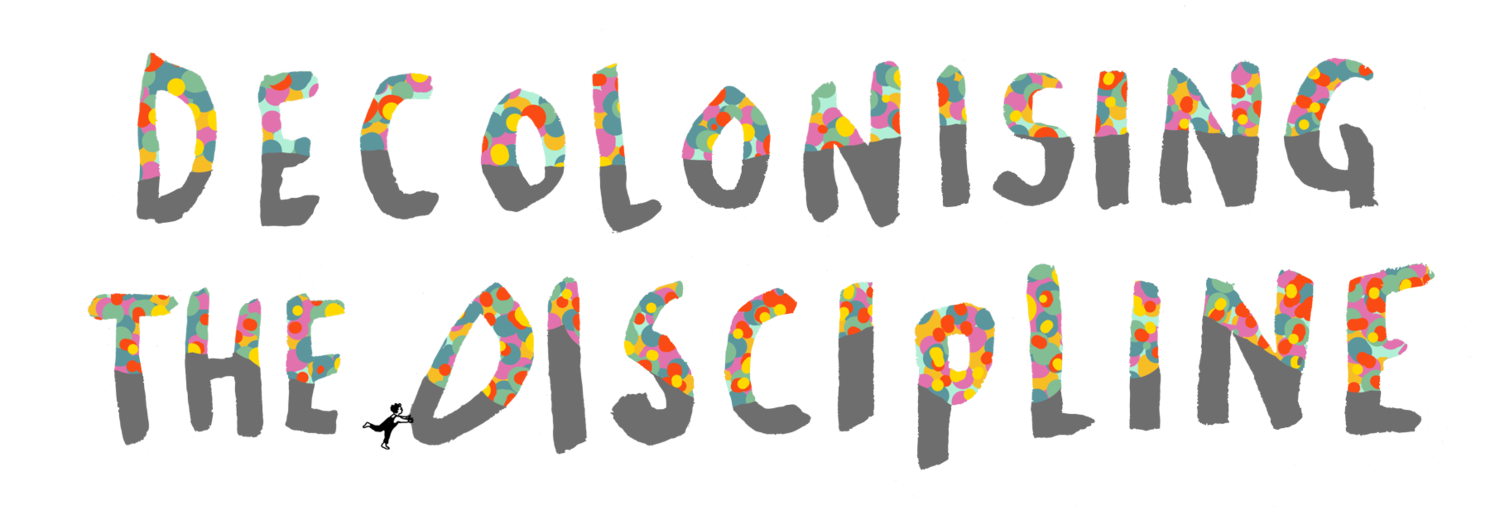Here you’ll find a record of our network events.
We’re always happy to promote forthcoming events relating to decolonising initiatives and practice on our social media , so if you have something you’d like us to share, please get in touch on Twitter.
What Does It Mean To Have A Diverse Curriculum 2: Schools and Higher Education in Collaboration in English Studies and Modern Foreign Languages ?
Friday 6th December 2024, 15.30pm - 17.00pm BST.
In April 2024, the Decolonising the Discipline network brought together educators from secondary and higher education to explore what it really means to have a diverse curriculum and what we might mean by decolonisation in that context (view the recording of this event).
The second part of What Does It Mean To Have A Diverse Curriculum brings together two decolonising initiatives led by practitioners in English Studies and Modern Foreign Languages to explore how schools and universities collaborate on decolonising initiatives.
The Decolonise the MFL Curriculum Special Interest Group (Secondary) hosted by Association for Language Learning (ALL) facilitates dialogue between MFL specialists in schools, universities, HE ITT institutions and publishing, in order to mobilise pedagogical advances in decolonised curriculum development, in order to have positive practical impact on our students in the secondary MFL classroom.
Find out more and sign up for the event for free here.
Decolonising the Discipline: Past, Present and Future in the #EnglishCreates week
A talk between our #DtD members, Anshuman Mondal and Katherine Baxter
We are excited to share our Decolonising the Discipline online talk for the #Englishcreates campaign led by University English.
See the video in our YouTube channel here.
Anshuman and Katherine reflected on the beginnings of our network Decolonising the Discipline. Anshuman noted: ‘It was a moment in our history where we realise the kinds of privileges in our histories and voices,’ They built upon the Black Lives Matter movement, highlighting the need to create our network, Decolonising the Discipline. Katherine emphasised the importance of moving online during the pandemic, which enabled dialogue between students, academics, and librarians. More recently, they referred to our collaboration with teachers, as many feel the need to be trained on decolonisation. Anshuman recalled our events with schools aimed at equipping teachers with tools to apply their knowledge in the classroom, which is often more restricted than higher education. Katherine added, ‘Decolonising isn’t always or only about marginalised contexts or decentering voices, but it’s also about bringing different lenses to canonical work: taking something that is familiar and looking at it with a different perspective’. They concluded with fantastic suggestions for the network's future, contributing to the excellent debates in the #Englishcreates campaign by University English. As Anshuman mentioned, "Decolonising brings a new lens but is also the ethos: reading a text is about reading the world." Follow us on social media and sign up for our newsletter: as our speakers said, everyone is welcome in this journey!
Anshuman Mondal (University of East Anglia) is Associate Dean Research for the Faculty of Arts and Humanities and Professor of Modern Literature, specialising in post-colonial studies. He is the author of Nationalism and Post-Colonial Identity: Culture and Ideology in India and Egypt (RoutledgeCurzon, 2003), Amitav Ghosh (Manchester University Press, 2007), and Young British Muslim Voices, an account of his journey across the UK talking to young Muslims.
Katherine Baxter (Northumbria University) is Professor in English Literature and Deputy Faculty Pro Vice-Chancellor in Research and Knowledge Exchange for the Faculty of Arts, Design and Social Sciences. Her research explores colonial and postcolonial literatures, law and literature, and literary multilingualism. She is particularly interested in how literary genres shaped colonial discourse and the intersections of literature with post/colonial legal administration. She has also published extensively on Joseph Conrad, including work on Conrad’s uses of romance and on Conrad’s engagement with other art forms.
What does it mean to have a diverse curriculum?
Monday 8th April 2024, 15.30pm - 17.30pm BST.
We are excited to welcome you to our first event this 2024 with the English Association. We will bring together educators from secondary and higher education to explore what it really means to have a diverse curriculum and what we might mean by decolonisation in that context.
Chaired by Professor Victoria Bazin, our panel will create a space in which we will attempt to reach a shared consensus about what it means to have a diverse curriculum and how to view decolonisation whilst maintaining the rigour of the discipline. Participants are welcome to submit questions in advance (anonymously, if they choose) for the panellists to discuss.
Our panellists include: Professor Victoria Bazin (Northumbria University), Bennie Kara, Dr Wendy Lennon, and John Perry (University of Nottingham). Forthcoming blogs by our panellists will be available here.
Find out more and sign up for the event for free here.
Decolonising the Library Roundtable
Monday 18 December 2023, 3.30 - 5.30 GMT, online
This network event focused on the topic of decolonising the library in schools, FE and HE. Speakers included Ella Taylor (Harris Westminster Sixth Form), Jo Lapham (Truro and Penwith College), Grant Young (UEA), Siddharth Soni (Jesus College, Cambridge), Farzana Qureshi (SOAS, London) and Devika Mehra (Newcastle), convened by University English.
Read short blogs by our speakers here.
Watch a recording of the event and read the transcript here.
Decolonising Research Roundtable
Friday 10 March 2023, 11am - 1pm GMT, online
This network event focused on the topic of decolonising research practices. Speakers included Lara Eliza Atkin (Kent), Éadaoin Agnew (Kingston), Nicole King (Oxford), Shazia Jagot and Alexandra Kingston-Rees (York), and the event was convened by the Institute of English Studies.
Watch a recording of the event and read the chat transcript.
Decolonising the Discipline at
English: Shared Futures 2022
Friday 8 July 2022, 6.15pm - 7.15pm BST, The Grove (MMU)
We were delighted to attend English: Shared Futures 2022, where we hosted a reception to introduce our project and its ambitions, update on the work we have been undertaking so far, and provide a taster of future activities. Attendees of English: Shared Futures were invited to join us in The Grove (Manchester Metropolitan University) between 6.15pm and 7.15pm, following the Walks Through Colonial Britain plenary session with Corinne Fowler, Raj Pal and Emily Zobel Marshall.
Find out more about English: Shared Futures.
Friday 18 June 2021
10am-12 noon BST, online
Decolonisation and Discomfort
Decolonising the discipline of English Studies will involve difficult and deeply uncomfortable conversations about the nature of the knowledge we produce and how we share it; and about the relationship between educators and students; and of both to the institutions in which such knowledge is encountered, from primary right through to higher education.
For this event, we were joined by Dr Tanja Dreher (Associate Professor in Media at the University of New South Wales), Professor Anthea Garman (Head of School of Journalism and Media Studies at Rhodes University) and Dr Poppy de Souza (University of New South Wales and Griffith University, Brisbane). Together we explored the necessity and value of such discomfort within the decolonising process and attempted to open up a space for the unsettling dialogues and debates that will have to take place if we are to pursue it.
Find out more about the event and read a transcript of the chat.
Developing the Network: An Open Forum
Thursday 26 November 2020, 2pm - 4pm GMT, online
This was a two-part event: an undergraduate forum, which aimed to provide an opportunity to focus on undergraduate priorities, and an open forum, open to everyone (including undergraduates) in which we discussed how to develop the Decolonising the Discipline network.
We gathered ideas and feedback from a large, lively group of participants, with the aim of ensuring the network serves our members’ needs and meets their priorities.
Friday 25 September 2020
2pm-4pm BST, online
Establishing a Decolonising Network
In our first network event, a group of participants shared experiences of establishing institutional or cross-institutional decolonising networks, the role and experiences of students in decolonising, the challenges of establishing a decolonising network and reflections on what the Decolonising the Discipline network could do next.
View the session on YouTube or find out more about the full programme.








